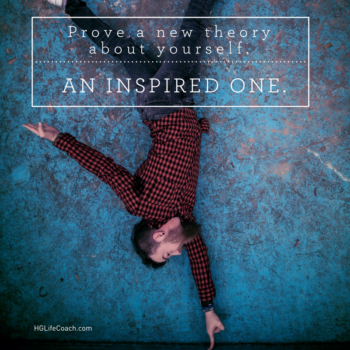If you have been reading my blogs over the past few years, you know I’ve juggled an addiction or two. In my 30s, I was obese and used food as an escape until I got an HG coach and learned how to put a leash on my vices, design dreams and care enough about my new life to get healthy and reach my goal weight.
So, what addiction am I managing these days?
I’m a nice-aholic. Yeah, one of those. I’m someone who is sooooo nice, it’s almost nauseating. Ask any of my friends. I help people all the time. I put other people’s needs before my own. I never say anything bad about anyone. I get along with everyone. If you need me, I’ll drive 500 miles to be by your side to help you. Doesn’t that sound nice? Hell, I’d be friends with me. Except, there’s also a “dark side” to being a nice-aholic that no one discusses. Certainly, not me.
Until now.
Overly nice, people-pleasing people are also liars and martyrs. When a person is nice all the time, it more than likely means they aren’t expressing their truth. They are being nice more than honest. For example, I say “yes” to people when I really want to say “no.” I do things for others that I don’t want to do. I don’t fully express my opinion in conversations because I don’t want to deal with confrontation or hurting someone’s feelings. Basically, I lie and don’t tell people how I really feel. I justify it by telling myself I’m being a good person and protecting them. I mean, does my best friend really want to hear that I think she looks like she’s put on five pounds? Nope.
The problem is my “being nice” has repercussions. If I don’t express myself, I start to grumble in my head about the person, getting annoyed with them when they didn’t do anything wrong. I quietly go into martyr mode where I complain to myself how I do everything for everyone else and no one appreciates me. Then I feel isolated and alone, blaming everyone else around me for my frustration and unhappiness. They don’t get me. No one listens to me. I take care of everyone. No one cares. I keep this all to myself and no one has any idea how I’m feeling because I don’t tell anyone. I just smile and act nice.
Welcome to my inner rollercoaster ride, my two-facedness. It’s not so nice, is it?
So, what’s really going on here? Plain and simply, I’m a chicken. I don’t fully express myself. I fly below the radar. I feel safe there. Typically, you don’t get in trouble down there. You fail less. You look good more often. You are liked. Although, when someone cares more about pleasing others than themselves, they erode their own self-confidence and self-respect. They diminish their relationship to themselves.
That’s exactly what I do.
My coach calls me a “number two.” What’s that? I don’t put myself first. I make everyone else in my life a “number one.” And where does it it hit the hardest for me, besides my relationships with other people? It damages my own believing in myself and my dreams. If I sell out on my dreams for everyone else’s, then I don’t have to be accountable for my own. I don’t have to be bold. I don’t have to take risks. I don’t have to be fearless.
Sneaky of me, right?
It’s my latest prison. Before, I used food as an escape, now I’m using being overly nice as my new route to not deal, not speak up and not fully go for what I want. Basically, I’ve hit (and constructed) my own self-expression ceiling. And it hurts. It’s become a problem for me. And I’m taking it down.
Get a feel for how The Handel Method® could benefit you.
I’m not alone in this trait. There are many of us stuck spinning in the nice cycle. How do you break a cycle? Here’s the coaching I got from my coach:
DESIGN YOUR PERSONALITY
1) Pick a Trait
Pick a trait you want to eliminate and make the choice to stop to doing it. I’m going to stop being a nice-aholic.
Sound too easy and trite? Read on.
2) Observe the Trait
Spend 1-2 weeks observing the trait. Catch the trait in action and how it shows up in your life. Listen to your inner dialogue when you are in the trait. Take notes on when it happens and what your trait is saying. For me, my trait appears when people ask my opinion, want something from me or when there’s a conversation with opposing views. My “nice” trait puts on a fake smile and tells people what it thinks they want to hear or promises to do what I think they want me to do.
3) Write up the Trait
Describe the trait by speaking in first person as if you are the voice of the trait. This is so you understand the trait. Be funny. Tell the truth. How does the trait speak? My “nice” trait would say, “Sure I’ll do that for you, I don’t mind…I’ll push my whole schedule for you….because I’m sooooo nice and these other things can wait. I’d hate for you to be mad at me so I can’t say no.”
4) Figure Out Why You Keep the Trait Around
It’s important to figure out the sad, sick reason you keep doing the trait. There is a reason and it’s deep and dark and works for you in some way. For me, if I spend all my time being nice and taking care of everyone else, I don’t have to be accountable for what I’m creating in my life. It gets me out of being responsible for being a great leader with a strong, powerful voice who gets HER dreams accomplished and it’s not even my fault—it’s yours.
5) Leash the Trait
Stop doing the trait. How? Put in rules so you can’t get away with it. Here are some examples of rules for a nice-aholic like myself.
a) Three Grumble Rule – if you have a thought in your head about a conversation, a person or a situation more than three times – you must go to tell the person.
b) Say “No” At Least Once A Day – When you’re a nice-aholic, one of your biggest issues is that you hate saying “no.” Well, it’s time to start doing it. Say at least one “no” a day. You will realize that you actually want to say “no” a lot more than you do and that it doesn’t kill you or anyone else.
c) Tell Your Friends – Whenever you want to change a behavior, it’s always important to let your friends know what you are up to so they can help you be accountable. For example, I told my friends how I was taking down my nice-aholic trait, which meant I was not picking anyone up at the airport anymore. And you know what? No one liked me any less because I had cancelled my taxi service. Instead they are helping me be accountable for stopping my trait.
6) Create a New Trait
When you take down a negative trait, best to replace it with a new one. I replaced overly nice with HONEST. Now, I am working on catching myself before I go all nicey nice and instead, express my truth nicely to the person. I It takes a real conscious effort to catch my old trait and flip it to my new trait. But each time I successfully do it, it feels great.
If you want to learn how to be bold in every area of your life, try HG’s flagship weekend course, Design Your Life Workshop, where you will learn how to design your life and start to take the right actions that will have you, once and for real, realize your dreams.
Love,
Katie

